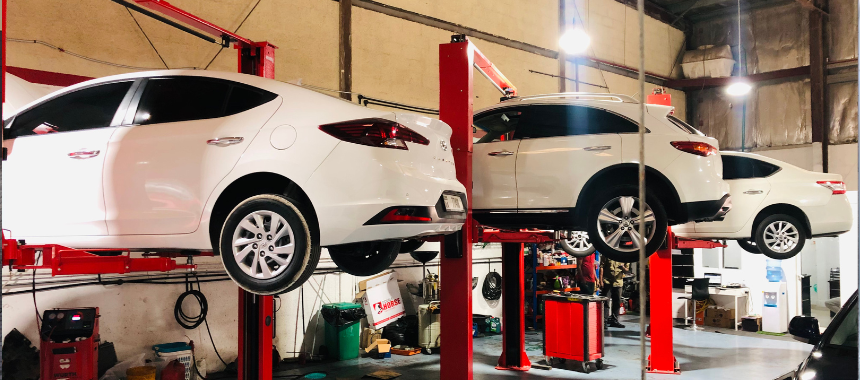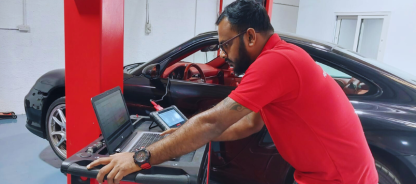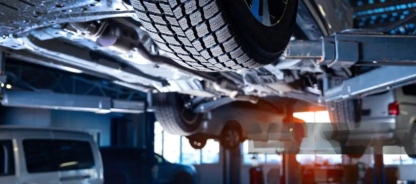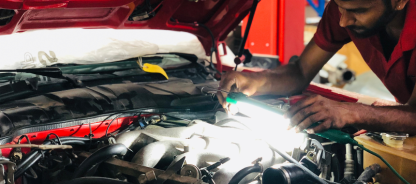Why It’s Important to Go to a Specialist for Your Car Problems
When something goes wrong with your car—whether it’s a strange sound, a dashboard warning light, or an issue with performance—your first instinct might be to search online for quick solutions or head to the nearest general mechanic. While this might seem convenient, it’s often not the most effective or cost-efficient approach. If you want your vehicle fixed right the first time, with long-term performance in mind, you should consider going directly to a specialist.
Let’s explore in detail why choosing a specialized auto technician is one of the smartest decisions you can make for your car’s health and longevity.
The Value of Expertise in Car Repair
General repair shops are typically equipped to handle a broad range of car issues, but they rarely offer the depth of knowledge that a specialist brings to the table. A specialist has extensive training in particular brands or systems, such as European luxury vehicles, hybrid drivetrains, or advanced electronics. This focus allows them to understand not only what’s wrong—but why it’s happening and how to fix it correctly.
Specialized Knowledge and Experience
Car specialists undergo specific training from manufacturers or accredited institutions. They know the intricacies of different vehicle makes and models—like torque specifications, sensor placements, electronic control systems, and proprietary parts—that general mechanics might not be familiar with. This knowledge significantly reduces guesswork and trial-and-error troubleshooting.
For example, a specialist who works exclusively with Japanese vehicles will know how to address issues unique to brands like Toyota, Honda, or Subaru, such as CVT transmission quirks or hybrid system errors. Their focused experience ensures your car receives service that’s tailored, not generalized.
Why a Specialist Offers More Value Over Time
It’s understandable that people want to save money on auto repairs, especially when facing unexpected issues. However, cheaper doesn’t always mean better. General shops might cut corners, use generic parts, or misdiagnose problems due to a lack of brand-specific training. These shortcuts often result in more problems later, turning what could have been a quick fix into a costly, long-term headache.
Quality of Tools and Equipment
Specialists often invest in high-end diagnostic tools and software that are specifically designed for the vehicles they service. These tools are regularly updated with the latest manufacturer data, which allows them to scan systems and identify errors that general diagnostic tools might miss.
For instance, a modern BMW or Mercedes requires more than just a basic OBD-II scanner. It needs factory-grade software that can interact with multiple onboard control modules, from adaptive cruise systems to dynamic suspension.
OEM Parts and Fitment
Most specialists prioritize using Original Equipment Manufacturer (OEM) parts or high-quality equivalents. These parts are designed to meet the exact specifications of your vehicle, ensuring better performance, longevity, and warranty compliance.
Generic parts, commonly used in general shops, may not fit properly or last as long, leading to repeat repairs or degraded vehicle performance over time.
The Importance of Consistency in Maintenance
One of the most overlooked benefits of visiting a specialist is the ability to build a service history with someone who truly understands your vehicle. When a single specialist maintains your car over several years, they learn about its condition, performance habits, and prior issues—allowing them to detect patterns and make more informed recommendations.
This kind of relationship leads to better preventative maintenance and more cost-effective care. For instance, if your car has a history of overheating, your specialist will know to check cooling systems more thoroughly during routine checkups, preventing a breakdown before it occurs.
Technological Advancements Demand Specialized Care
Vehicles today are not just machines—they are sophisticated computers on wheels. With systems like lane-keeping assist, adaptive cruise control, parking sensors, infotainment systems, and hybrid or electric drivetrains, cars are becoming increasingly complex.
General mechanics may not have the equipment or technical know-how to work with advanced features. Specialists, on the other hand, are trained to handle software updates, reprogramming ECUs, and recalibrating sensors. They are more likely to have the right certifications and factory support to perform these tasks safely and accurately.
When Should You See a Specialist?
While routine oil changes and tire rotations can be handled by many service centers, here are a few situations where you should definitely see a specialist:
-
You drive a luxury, performance, or imported vehicle.
-
You’re experiencing persistent or complex issues (e.g., drivetrain, suspension, electrical).
-
Your vehicle is under warranty and requires authorized service.
-
You've had a recurring issue that general shops haven’t been able to resolve.
-
Your car uses specialized technology, like hybrid or electric systems.
Conclusion: A Smart Investment in Your Vehicle’s Future
Taking your car to a specialist isn’t about spending more—it’s about making a smarter investment in your vehicle’s performance, safety, and longevity. The benefits of expert diagnostics, higher-quality repairs, personalized service, and long-term reliability far outweigh the perceived savings of a quick-fix repair shop.
Think of it this way: you wouldn’t go to a general doctor for heart surgery. The same logic applies to your vehicle. Entrusting it to someone who knows your car inside and out is one of the best decisions you can make—whether it’s for a quick repair or a long-term maintenance plan.
Your car deserves specialized care. And you deserve peace of mind.






